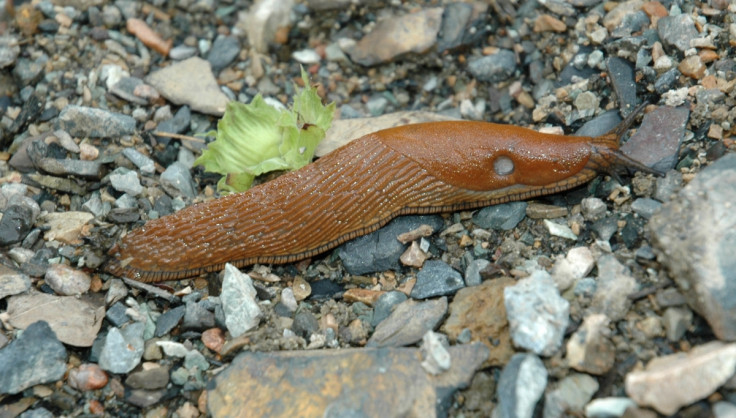Spanish slug: What is the arion vulgaris and how can you save your garden?

New worries have emerged over the rising population of Spanish slugs in UK gardens, proving that the species might be a worse threat than first thought. Research suggesting that the slugs have bred with UK species might mean the introduction of a hybrid that is both invasive and adapted to the British climate.
Arion vulgaris was first spotted in the UK in 2012. They can grow up to 15cm long and are generally coloured between orange and reddish brown. They also lay almost twice as many eggs as native species and have a more varied diet – including animal corpses and excrement – than their native brethren.
The UK isn't the only target, the slugs have already taken over gardens in Scandinavia and Germany. Voraciously eating up plants and damaging local slug populations means the vulgaris' rise could spell real change for ecosystems across the country.
"Maybe people are not too concerned about an endangered slug species," Dr Leslie Noble of the University of Aberdeen told the Times: "But that invasive slug is going to produce lots more eggs. Gardeners are going to see more slugs, more active, and ultimately a much bigger biomass of slugs."
Usual slug pellets tend not to have an effect on arion vulgaris. There are a number of home remedies to deal with the slug invasion: beer or milk traps, sprinkling salt or coffee around the area but word of mouth does not give these treatments much backing.
One suggestion is to buy some nematodes – microscopically thin worm-like parasites that when released into the garden will rush to the nearest slug to infect and kill it. You can buy a box of nemotodes online for around a tenner – though if they prove too effective they can wipe out slugs entirely from the garden, massively disrupting the ecosystem.
If your garden ends up with no slugs, it could drive away common predators which will search elsewhere for slimy treats – leaving the garden even more vulnerable to a massive infestation.
Even with all that, website Sciencenordic.com says that really there's only one method to save your garden from the pests: pick them up. And try to collect them before the summer hits and they start to lay eggs, then suddenly a minor slug problem could become a few hundred-strong slug problem.
© Copyright IBTimes 2025. All rights reserved.





















